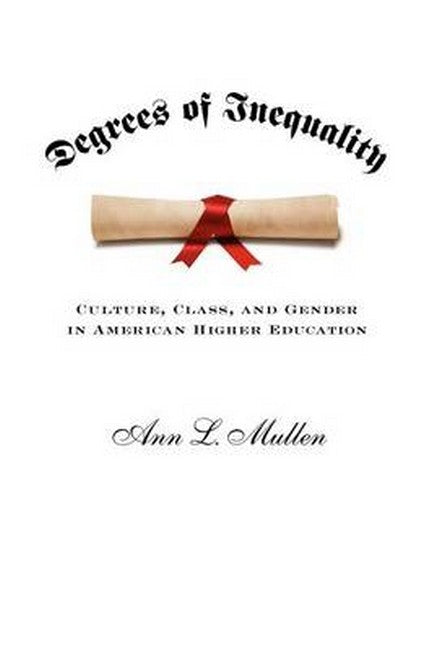Degrees of Inequality reveals the powerful patterns of social inequality in American higher education by analyzing how the social background of students shapes nearly every facet of the college experience. Even as the most prestigious institutions claim to open their doors to students from diverse backgrounds, class disparities remain. Just two miles apart stand two institutions that represent the stark class contrast in American higher education. Yale, an elite Ivy League university, boasts accomplished alumni, including national and world leaders in business and politics. Southern Connecticut State University graduates mostly commuter students seeking credential degrees in fields with good job prospects. Ann L. Mullen interviewed students from both universities and found that their college choices and experiences were strongly linked to social background and gender. Yale students, most having generations of family members with college degrees, are encouraged to approach their college years as an opportunity for intellectual and personal enrichment. Southern students, however, perceive a college degree as a path to a better career, and many work full- or part-time jobs to help fund their education.Moving interviews with 100 students at the two institutions highlight how American higher education reinforces the same inequities it has been aiming to transcend.

